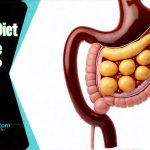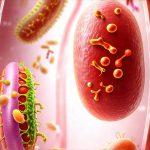The ketogenic diet, characterized by very low carbohydrate intake, moderate protein consumption, and high fat intake, has surged in popularity as a weight-loss strategy and potential therapeutic intervention for conditions like epilepsy and type 2 diabetes. Many individuals experience positive outcomes with keto, reporting improved energy levels, mental clarity, and successful weight management. However, the dramatic dietary shift inherent to ketogenic eating can also disrupt the delicate balance of the gut microbiome and digestive processes, leading to a range of gastrointestinal issues, most notably stool instability – encompassing both diarrhea and constipation. This isn’t necessarily an indication that keto is inherently flawed; rather, it highlights the importance of mindful implementation, adequate preparation, and personalized adjustments to mitigate potential adverse effects. If you are experiencing ongoing issues with stool softness, consider exploring potential dietary triggers.
Successfully navigating the ketogenic diet requires more than simply cutting carbs. It demands a holistic understanding of how this dietary pattern impacts the digestive system, nutrient absorption, and overall gut health. Many newcomers underestimate the transition period and fail to proactively address potential imbalances that can arise from significantly altered food choices. Ignoring these issues can lead not only to unpleasant symptoms but also potentially compromise the long-term benefits sought through keto adoption. A proactive approach focusing on hydration, electrolyte balance, fiber intake (from appropriate sources), and gut health support is crucial for minimizing stool instability and maximizing the positive effects of this dietary regimen. Recognizing changing meal frequencies as a potential cause can help you adjust your diet accordingly.
The Gut Microbiome & Keto’s Impact
The human gut microbiome – the vast community of microorganisms residing in our digestive tract – plays a pivotal role in overall health, influencing everything from digestion and nutrient absorption to immune function and mental wellbeing. A diverse and balanced gut microbiome is generally associated with better health outcomes. The ketogenic diet, by drastically reducing carbohydrate intake, directly impacts this microbial ecosystem. Carbohydrates are the primary food source for many beneficial gut bacteria; when their supply is severely limited, these populations can decline while others – those that thrive on fat and protein – may proliferate. This shift in bacterial composition can disrupt the delicate balance within the gut.
This disruption doesn’t automatically equate to a “bad” microbiome, but it does necessitate careful consideration. A less diverse microbiome is often more susceptible to imbalances and potentially harmful bacteria overgrowth. Furthermore, the reduced fiber intake commonly associated with keto (many high-fiber foods are also carbohydrate-rich) exacerbates this issue. Fiber serves as prebiotic food for beneficial gut bacteria, further diminishing their populations when restricted. The consequence of these changes can be altered bowel movements – ranging from rapid transit and diarrhea to sluggish digestion and constipation – along with bloating, gas, and other digestive discomforts. Experiencing stool disruption could indicate a need to adjust your fiber intake.
It’s important to remember that individual responses vary significantly. Factors like pre-existing gut health, dietary habits before keto, genetics, and stress levels all influence how the microbiome responds to this dietary change. What works for one person may not work for another, underscoring the need for personalized strategies. The goal isn’t necessarily to eliminate the shift in microbial composition (which is inevitable), but rather to mitigate its negative consequences and support the growth of beneficial bacteria as much as possible within the constraints of a ketogenic diet. If you are experiencing digestive instability, it may be linked to emotional factors.
Addressing Fiber Deficiencies on Keto
One of the biggest challenges with keto is obtaining adequate fiber intake without exceeding carbohydrate limits. Traditional high-fiber sources like whole grains, beans, and many fruits are often restricted or eliminated. However, fiber remains crucial for digestive health and regularity, even when following a low-carb diet. The key lies in selecting appropriate low-carb fiber sources and incorporating them strategically into your meal plan.
- Chia seeds: Excellent source of soluble fiber and omega-3 fatty acids.
- Flaxseeds (ground): Provide both soluble and insoluble fiber. Grinding is important for optimal absorption.
- Avocado: Contains a good amount of fiber, healthy fats, and essential nutrients.
- Low-carb vegetables: Leafy greens (spinach, kale), broccoli, cauliflower, Brussels sprouts all offer valuable fiber content.
- Psyllium husk: A highly effective soluble fiber supplement; use cautiously and with plenty of water.
It’s also crucial to increase your fluid intake when increasing fiber consumption. Fiber absorbs water, and insufficient hydration can worsen constipation. Start slowly with small amounts of low-carb fiber sources and gradually increase the quantity as tolerated. Pay attention to how your body responds and adjust accordingly. Avoid relying solely on supplements; prioritize whole food sources whenever possible for a more balanced nutritional profile. Avoiding constipation requires careful planning.
Electrolyte Imbalance & Digestive Function
The ketogenic diet often leads to increased excretion of electrolytes – sodium, potassium, and magnesium – due to reduced insulin levels and altered kidney function. This electrolyte imbalance can significantly impact digestive processes and contribute to stool instability. Sodium plays a vital role in fluid balance and nerve transmission, influencing bowel motility. Potassium is essential for muscle contractions, including those involved in peristalsis (the wave-like movements that move food through the digestive tract). Magnesium aids in muscle relaxation and helps regulate bowel function.
When electrolyte levels are low, it can disrupt these processes, leading to either diarrhea or constipation. Low sodium can cause dehydration, exacerbating constipation. Potassium deficiency can impair intestinal motility, contributing to both diarrhea and cramping. Magnesium deficiency can lead to muscle spasms and weakened peristalsis, further hindering digestion.
Replenishing electrolytes is therefore essential for maintaining healthy digestive function on keto. Consider these strategies:
1. Increase sodium intake through salted foods or electrolyte supplements (sodium chloride).
2. Consume potassium-rich low-carb vegetables like spinach and avocado. Potassium supplementation may be necessary, but consult with a healthcare professional before doing so.
3. Ensure adequate magnesium intake through leafy greens, nuts, seeds, and potentially magnesium citrate supplementation (again, consulting a healthcare professional is advised). Excessive sitting can contribute to digestive issues.
The Role of Fat & Bile Production
The high fat content of the ketogenic diet places increased demands on the gallbladder and liver to produce sufficient bile for efficient digestion and absorption. Bile emulsifies fats, breaking them down into smaller droplets that are easier to digest. If the body isn’t producing enough bile – or if it’s not being released effectively – undigested fat can lead to diarrhea, often characterized as greasy and foul-smelling stools. This is particularly common during the initial adaptation phase of keto, when the digestive system is adjusting to processing a higher fat load. If you are experiencing stool discomfort, consider your fat intake.
Supporting healthy bile production involves several strategies. Adequate hydration is crucial for optimal liver function. Consuming healthy fats – rather than processed or inflammatory oils – provides building blocks for bile synthesis. Some individuals find that incorporating small amounts of digestive bitters before meals can stimulate bile flow (though this should be done cautiously and with consideration for individual sensitivities).
If persistent diarrhea is present, it’s essential to rule out underlying medical conditions. While often related to fat malabsorption, chronic diarrhea can also indicate other issues requiring medical attention. It’s important not to self-diagnose or self-treat; a healthcare professional can help determine the root cause and recommend appropriate interventions. If you suspect hard stool blocks, seek professional advice.


















